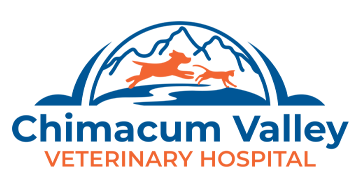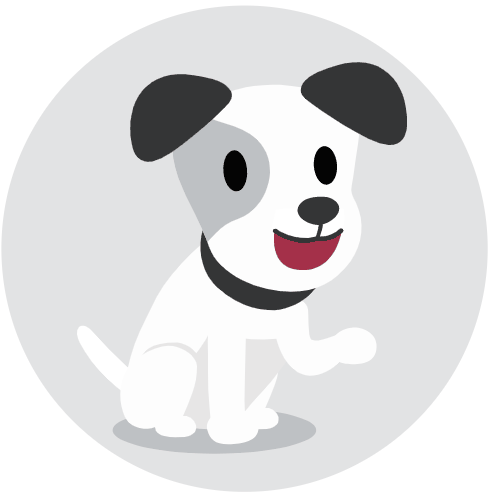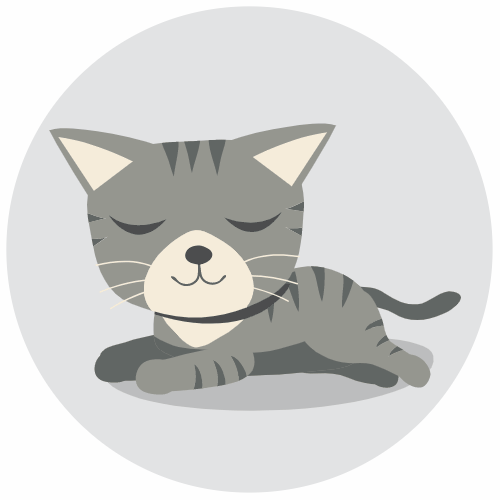At your puppy’s or kitten’s first visit with us, we’ll help you put together a
HEALTHCARE PLAN
that meets their unique needs and sets them up for a long, happy life with you. To start, we perform a physical examination, and discuss any concerns and questions you have. We will discuss potential risk factors for your pet and begin their initial vaccinations.
Why Your Pet’s First Visit is Important
Adopting a new puppy or kitten is certainly an exciting event, and we can’t wait to support their lifelong journey together with your family. The first thing to do after adoption is to schedule your pet’s first visit with their veterinarian. Puppies and kittens are generally quite vulnerable to illness and infection at this tender stage of life, and in addition to making sure they are as healthy as can be, we also need to start building up their protection against disease.
The first visit is crucial because it marks the beginning of your pet’s care and helps set the stage for their health and development going forward. Puppy and kitten visits allow us to evaluate their health and establish a baseline, and screen for possible illnesses. They are also an opportune time for building a lasting partnership with your veterinarian.
First Exams/Vaccinations
EXAM ONE
Your pet’s first exam with us is when you initially bring them in. Frequently we will see puppies/kittens around 8 weeks old.
Kitten Vaccines
- FVRCP (Feline Viral Rhinotrachetitis, Calici virus, Panleukopenia) #1
- Deworming #1
Puppy Vaccines
- DA2PP (Distemper, Adenovirus, Parvovirus and Parainfluenza)
- Deworming
EXAM TWO
Our recheck exam is usually for pets near 12 weeks old and is an important exam to assess the growth of your pet.
Kitten Vaccines
- FVRCP (Feline Viral Rhinotrachetitis, Calici virus, Panleukopenia)
- Deworming
Puppy Vaccines
- DA2PP (Distemper, Adenovirus, Parvovirus and Parainfluenza)
- Lepto
- Bordetella
- Final Deworming
EXAM THREE
The next exam takes place when they are 16 weeks old. Your doctor will assess their growth and health, finalize their immunization, and begin discussing the next steps as your pet becomes an adult.
Kitten Vaccines
- FVRCP (Feline Viral Rhinotrachetitis, Calici virus, Panleukopenia)
- FeLV (Feline Leukemia Virus)
- Rabies
Puppy Vaccines
- DA2PP (Distemper, Adenovirus, Parvovirus and Parainfluenza)
- Lepto
- Bordetella
- Rabies

Spay & Neuter Surgery
Another important step in the care of your puppy or kitten is spay/neuter surgery. This is usually recommended after your pet has completed their initial vaccinations. Since every pet is unique and some breeds develop more slowly, there is no fixed age at which we recommend spaying and neutering for all pets. Rather, your veterinarian will evaluate your pet’s needs based on their age, breed, size, and medical history, and help you choose the best time to do the surgery.
HOW DO I SET A POTTY TRAINING SCHEDULE?
- First thing in the morning
- Last thing at night
- After spending time in a crate
- Upon waking up from a nap
- After eating or drinking
- Time between potty breaks
should be no more than 2-4 hours
HOW DO I CRATE TRAIN MY PUPPY?
- Dogs like clean “home” areas and are less likely to have accidents
- Place crate near exterior door for quick relief
- The crate should be big enough for your puppy to stand up, turn around, and lay down
WHEN SHOULD I REINFORCE GOOD BEHAVIOR?
- Don’t scold your puppy for having an accident
- Praise them for doing the right thing
- Reward them with treats, pats, and attention
How do I get my puppy to stop bad behavior?
WHAT CAN MY PUPPY CHEW ON?
- Chewing is a calming mechanism for puppies
- Keep chewing toys around the house; when they start to chew on toys instead of household objects, give them praise
HOW DO I STOP MY PUPPY FROM BARKING?
- Scolding your puppy when they bark can make it worse; instead, ignore barking and praise quiet
- Training your dog to sit helps them fight impulsive barking when they want something
HOW DO I STOP MY PUPPY FROM BEGGING AT THE TABLE?
- Feed them first before you eat
- Create a cozy “go-to” spot near the table where they can be comfortable
- Praise them with treats when they don’t beg
How do I feed my puppy?
HOW OFTEN DO I FEED MY PUPPY?
- 6-12 weeks: 4x a day
- 3-6 months: 3x a day
- 6-12 months: 2x a day
- After a year: 2 half portions a day
- Watch your puppy to gauge if they are eating healthy
WHAT FOOD SHOULD I FEED MY PUPPY?
- Look for AAFCO guidelines
- Look for age and health specific formulas
- Ask your vet for tailored recommendations
WHAT ARE HARMFUL FOODS FOR PUPPIES?
Dairy, chocolate, grapes, and sugary foods, snacks, or desserts
WHAT THINGS SHOULD I BUY FOR A KITTEN?
- Scratch posts (helps preserve furniture!)
- Litter boxes, cat carriers, and food and water bowls
- Stain and odor remover
WHAT SHOULD I MOVE OUT OF THE WAY?
- Toxic plants
- Cleaners and sprays
- Any dog food that might be in the house
HOW CAN MY CAT BE COMFORTABLE?
- Bed and blanket
- Small, cozy space
- Grooming supplies
- Pheromone products
How should I play with my kitten?
HOW DO I PLAY SAFELY WITH MY KITTEN?
- Use balls, jingles, anything on a string, and cotton chew toys
- Avoid “play” with your hands to avoid injury when full grown
WHAT ARE THE BENEFITS OF PLAYING WITH YOUR KITTEN?
- Strengthens your bond with your kitten
- Allows them to release energy that could lead to damage
- Builds trust and comfort for them within a new home
HOW OFTEN SHOULD I PLAY WITH MY KITTEN?
- 20+ minutes of play per day
- Set aside at least two times a day preferably early in the morning and late at night
How do I feed a kitten?
HOW OFTEN SHOULD I FEED MY KITTEN?
- Dry food only: leave available at all times
- Wet food only: feed at least four times a day
- Combo: feed wet food twice a day and leave dry food available
WHAT SHOULD I FEED MY KITTEN?
- Look for AAFCO guidelines
- Look for age and health specific formulas
- Ask your vet for tailored recommendations
WHAT ARE HARMFUL FOODS FOR KITTENS?
- Raw meats, eggs, raw fish
- Grapes, chocolate, and dairy




